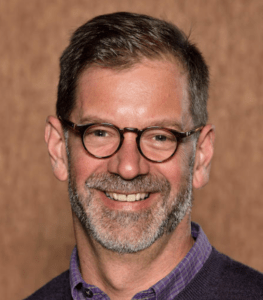Embracing and implementing intuitive and redemptive approaches to ministry is the goal of an ecumenical and national study that has tracked the faith and professional development of 50 ministers for a decade.
Eileen Campbell-Reed and Christian Scharen, co-directors of the Learning Pastoral Imagination Project, have provided spiritual direction and self-care resources to members of the clergy cohort, monitored their progress and shared practical applications with wider audiences along the way.
Initially funded by the Lilly Endowment, the project recently was awarded a $30,000 research grant by the Louisville Institute.

Eileen Campbell-Reed
The focus is on helping clergy engage ministry as a spiritual practice, said Campbell-Reed, visiting associate professor of pastoral theology and care at Union Theological Seminary in the City of New York and a former spiritual formation consultant for the Cooperative Baptist Fellowship.
“We are talking about wisdom enacted over time and a kind of pastoral understanding that integrates spiritual practice and imagination,” she said. “This is very different from how I was taught, which was role- and task-oriented. This is a much more holistic approach.”
The project is an ongoing, longitudinal study of theological learning and ministry from the point of view of clergy recruited from 10 seminaries in five regions of the United States. Cohort members include Catholic, mainline and evangelical Protestant, Orthodox and Pentecostal ministers whom Campbell-Reed and Scharen, a Lutheran minister and pastor of St. Lydia’s Dinner Church in Brooklyn, N.Y., are preparing to interview for the fourth time in 10 years.
“We’re really curious about what they learned in the past year. A year out from the lockdown, there is a lot to be learned there,” Campbell-Reed said.

Christian Scharen
But even without the coronavirus outbreak, the first post-seminary decade should reveal how the ministry-as-spiritual-practice approach is guiding participating ministers through the challenges of second or third callings.
“The 10-year-mark usually signals things about sustainability and how the learning is lodged in people,” she said.
The interviews conducted during the fifth year illuminated some of that professional movement, Scharen said. “At 10 years, I am more curious about burnout — are they plateauing or are they continuing to learn and grow?”
Special attention also will be paid to three female members of the cohort who left the pastorate in 2020 to help their families through the COVID-19 pandemic, Campbell-Reed said. “Women in ministry are taking the brunt in this pandemic just as they are in every other profession. Homeschooling their children and the other stresses are taking a really high toll on them.”
To emphasize the practical nature of the endeavor, Campbell-Reed and Scharen have produced scholarly articles and incorporated lessons learned into their own teaching and denominational and clergy coaching.
In 2016, they published “Learning Pastoral Imagination: A Five-Year Report On How New Ministers Learn in Practice.” The authors discovered the importance of formal learning, spiritual direction and daily practice to develop pastoral imagination.
“At 10 years, I am more curious about burnout — are they plateauing or are they continuing to learn and grow?”
“As one accumulates multiple instances of pastoral situations, by the repetition of doing what is needed in the flow of the day, the experience of how to do it becomes intuitive, as if without thinking,” according to the report.
“New ministers cultivate pastoral imagination when they seek out and engage integrative curricular elements or find dynamic teachers that help them to integrate their academic and skill-based learning with a developing sense of identity in ministry.”
The project already is being embraced in the U.S. and internationally by denominational leaders, theological educators, students and clergy eager to learn how to transform ministry into a spiritual practice, Scharen said. “The goal of the study is to engage people as we go and to promote their capacity to do good ministry.”
And good ministry requires developing spiritual imagination that helps pastors “see the depths of God’s presence in any pastoral situation,” he added.
But he and Campbell-Reed also are striving to share the project with a non-academic audience.
Campbell-Reed has been sharing study findings through her 3 Minute Ministry Mentor project and does so through her new book, Pastoral Imagination: Bringing the Practice of Ministry to Life, scheduled for release in May.
“We have done academic articles and the 2016 report, but we also are making these stories much more available to people who aren’t going to go read an academic journal,” she said. “We have invited the members of this cohort to articulate their experiences, but we want to help anybody who wants to partake to reflect in a way that shapes how they imagine and do their work.”


